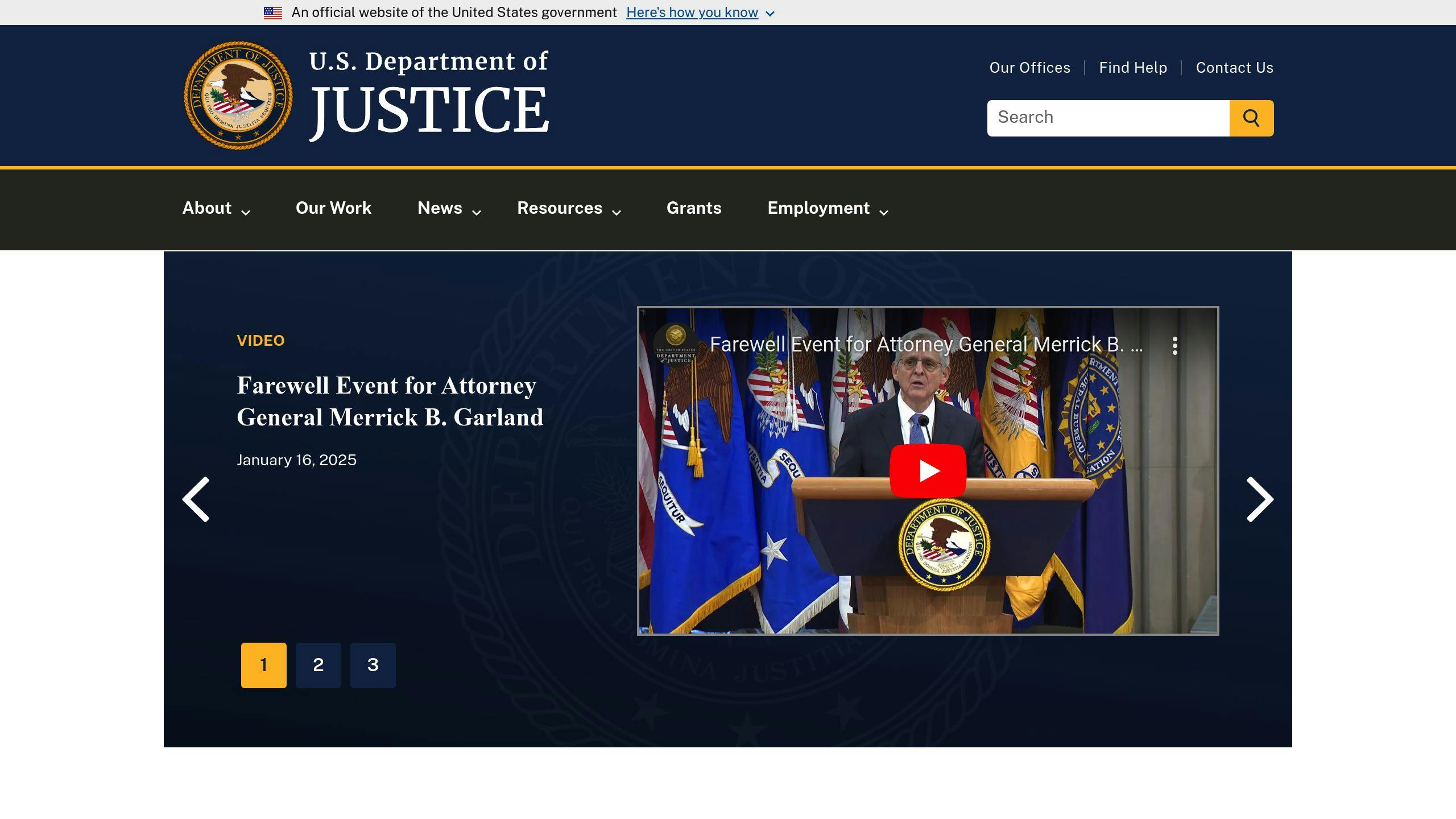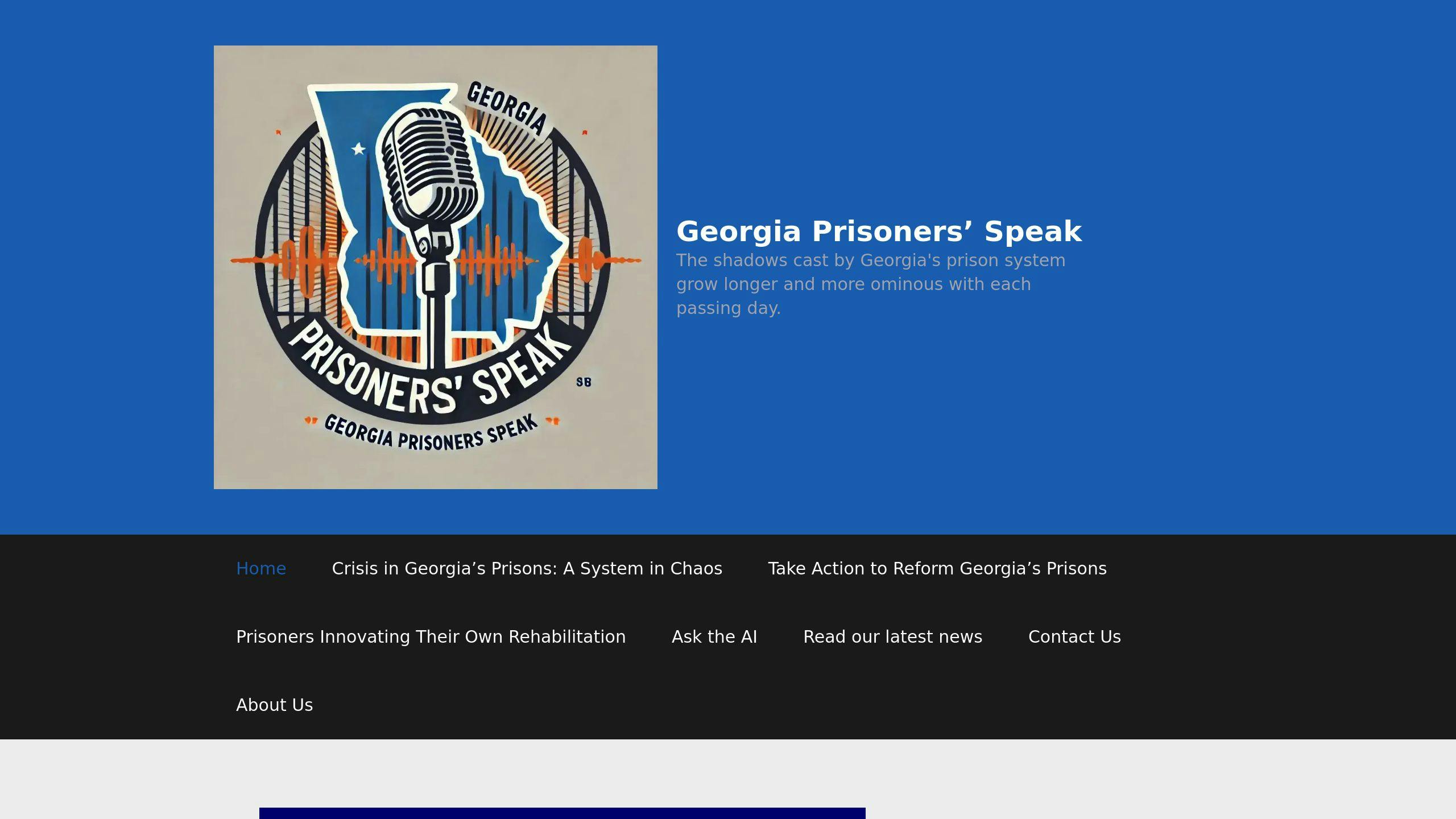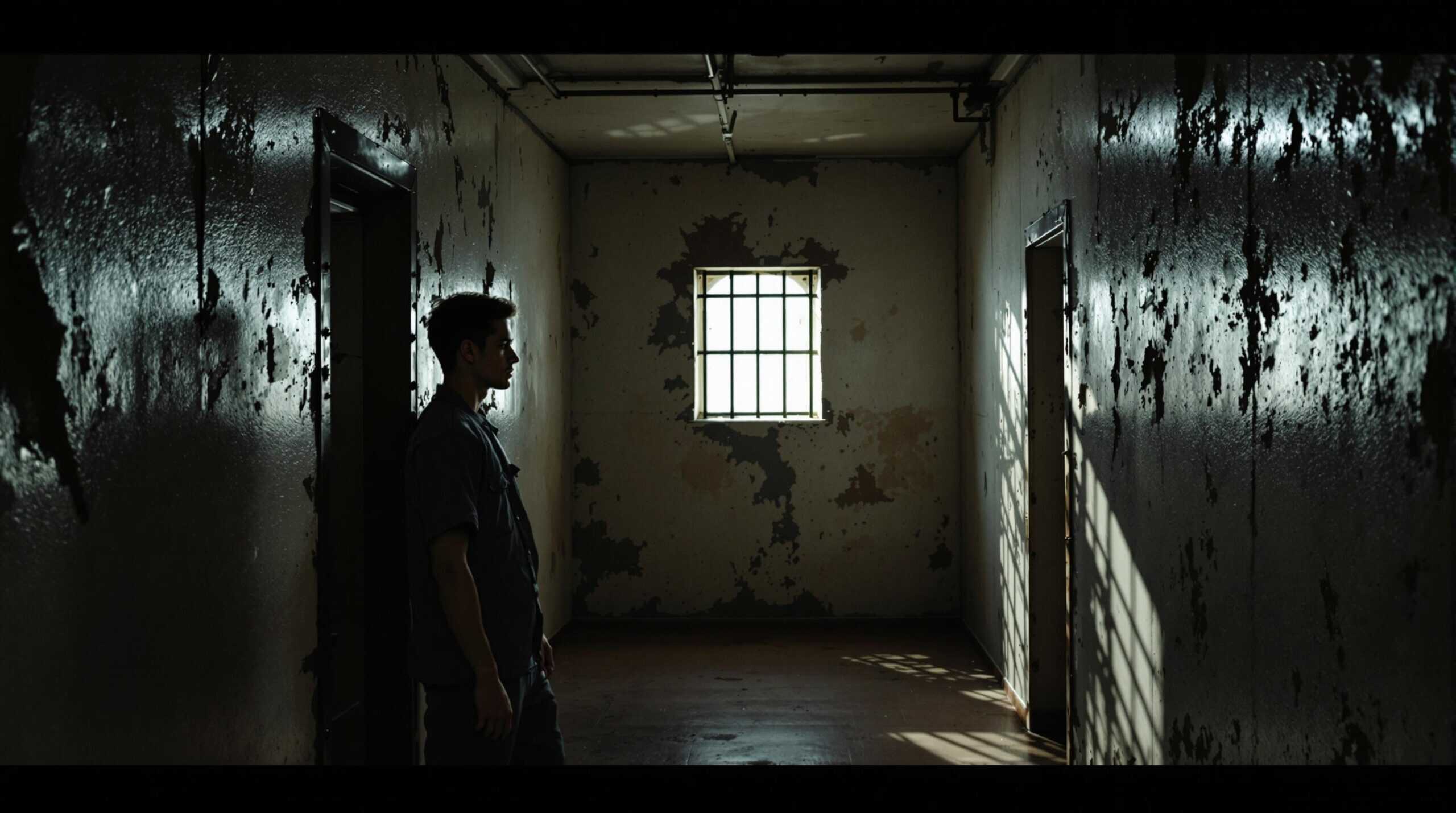Georgia’s prison grievance system is failing, leaving inmates vulnerable to violence and neglect. The 2024 DOJ report reveals systemic issues in Georgia prisons, including ignored complaints, retaliation against whistleblowers, and unchecked violence. Vulnerable groups, such as LGBTI inmates, face heightened risks due to inadequate oversight and accountability.
Key Findings:
- Grievance systems are plagued by delays, dismissals, and lack of transparency.
- Inmates who report abuse often face retaliation, including physical violence.
- Vulnerable populations, like LGBTI inmates, are disproportionately affected.
- Systemic violence, including severe assaults, remains unaddressed.
Proposed Solutions:
- Immediate reforms: Centralized tracking of complaints, clear filing procedures, and staff accountability.
- Long-term fixes: Independent oversight, improved staff training, and collaboration with advocacy groups.
The DOJ calls for urgent action to protect inmates’ constitutional rights and ensure basic safety in Georgia’s prisons.
Former inmate applauds Department of Justice investigation

Findings from the 2024 DOJ Report
How Grievance Systems Fail
The DOJ investigation uncovered serious issues within Georgia’s grievance systems. These included delays, dismissals, and a lack of transparency in addressing inmate complaints. Problems like insufficient staffing and poor oversight created conditions where grievances were often ignored or mishandled, leaving inmates without a way to report abuse or seek protection effectively [1].
The report also highlighted that the Georgia Department of Corrections (GDC) failed to safeguard individuals who cooperated with DOJ interviews. Many faced ongoing violence and retaliation – such as physical assaults and threats – even months or years after assisting investigators [1].
These failures have played a direct role in the pervasive violence documented in Georgia’s correctional facilities.
Violence and Harm in Georgia Prisons
The DOJ’s findings reveal alarming levels of violence within Georgia’s prisons. The report details multiple cases of severe physical assaults, including one incident where an inmate was stabbed 20 times [3]. This level of violence points to a systemic problem that the grievance systems have been unable to address or mitigate.
“The Georgia Department of Corrections fails to provide incarcerated persons with the constitutionally required minimum of reasonable physical safety”, the DOJ report states. This underscores the failure of grievance systems to deter, report, or properly investigate violent incidents [1].
Neglect of Vulnerable Inmates
Particular attention was given to the treatment of vulnerable groups, especially LGBTI inmates, who are at greater risk of abuse and violence. The investigation highlighted several contributing factors:
| Systemic Failures | Impact |
|---|---|
| Inadequate Supervision | Increased risk of abuse |
| Failed Grievance Processing | Unsafe reporting channels |
| Lack of Accountability | Ongoing discrimination |
| Limited Protection | Continued victimization |
The DOJ reviewed over 19,000 records and found that GDC’s inability to maintain basic operations and properly supervise staff significantly raised the risk of harm for vulnerable populations [1]. Additionally, GDC’s resistance to allowing access to facilities and staff interviews further hindered efforts to address these systemic problems, leaving groups like LGBTI inmates particularly exposed to abuse and neglect [1].
Resolving these deep-rooted issues will require a combination of institutional reforms and support from advocacy organizations.
sbb-itb-7858f51
Efforts to Address the Issues
The Work of Georgia Prisoners’ Speak (GPS)

GPS works to amplify the voices of inmates and push back against institutional narratives through advocacy and documentation. In 2020, the organization helped inmates file over 120 grievances protesting poor food quality during the pandemic, showing how organized efforts can make an impact [2].
Their initiatives include educating inmates about their rights through informal networks, connecting them with legal resources, and shedding light on systemic failures. GPS regularly provides legal assistance, shares weekly updates on rights violations, collaborates with media outlets, and advocates for meaningful reforms.
Grassroots and Community Advocacy
Grassroots groups collaborate with GPS to raise public awareness, push for policy changes, and support the families of inmates. Organizations like Ignite Justice and The Human and Civil Rights Coalition of Georgia play a key role in these community-focused efforts [2].
By exposing systemic issues and empowering inmates, GPS tackles many of the problems highlighted in the DOJ report. Meanwhile, grassroots organizations extend this impact by engaging with the public and lawmakers.
“The unprecedented levels of violence and understaffing currently dominating Georgia’s prison system require immediate attention and reform”, said a GPS representative during their coverage of the ongoing crisis [2].
While these advocacy efforts are crucial, addressing the root causes of the prison system’s failures will require deeper, systemic changes.
Proposed Solutions for Reform
Short-Term Fixes for Grievance Systems
The Department of Justice (DOJ) has emphasized the need for immediate improvements to Georgia’s grievance systems. Key steps include creating a centralized tracking system to monitor complaints and provide regular updates to inmates [1]. The Georgia Department of Corrections (GDC) must also establish clear filing procedures, ensure these guidelines are accessible to all inmates, and implement standardized response times with measures to hold staff accountable.
These changes aim to tackle pressing issues, but deeper, long-term adjustments are essential for lasting reform.
Long-Term Changes to the System
Addressing the root problems within Georgia’s prisons requires more than quick fixes. The DOJ suggests increasing staffing levels and offering thorough training programs. Training should focus on crisis management and de-escalation techniques to help reduce violence [1].
A broader reform plan should include the following:
| Reform Component | Expected Outcome |
|---|---|
| Independent Oversight | Regular audits and public reporting to ensure accountability |
| Grievance Tracking | Centralized digital system for managing complaints |
| Transparent Review Process | Independent monitoring and timely resolution of grievances |
Working with Advocacy Groups
The DOJ emphasizes the role of external stakeholders, like advocacy groups, in pushing for meaningful change [1]. Groups such as GPS (Georgia Prisoner Support) are especially important for bridging the gap between short-term fixes and systemic reform. Their work includes monitoring grievance processes, providing feedback on policy implementation, and connecting inmates with legal resources [2].
For instance, GPS can assist by documenting violations and offering insights into the real-world impact of reforms. Regular meetings between officials and advocacy groups are recommended to assess progress and adjust strategies as needed [3]. This collaboration not only amplifies the voices of incarcerated individuals but also ensures accountability in implementing reforms.
Achieving meaningful change will require ongoing effort and regular evaluations.
Conclusion
Summary of the Report’s Findings
The 2024 DOJ report highlights deep issues within Georgia’s prison grievance systems. Complaints often go unanswered, creating an environment where violence and neglect thrive unchecked. These systemic problems strip inmates of their constitutional rights, with particularly harsh consequences for vulnerable groups like those with mental illnesses and members of the LGBTI community. The findings stress the need for immediate reforms to ensure accountability and safeguard inmates’ rights.
Steps Toward Change
Addressing these issues will require prompt action and long-term dedication from all involved parties. The Georgia Department of Corrections must focus on both immediate solutions and broader structural changes to fix these critical problems.
Here are the key areas that need attention:
| Priority Area | Action Needed |
|---|---|
| Oversight | Introduce independent monitoring systems |
| Staff Training | Develop better programs for handling grievances |
| Documentation | Implement a digital system for tracking complaints |
| Accountability | Provide public reports on grievance outcomes |
Advocacy groups like Georgia Prisoners’ Speak are pushing hard for meaningful change. As their spokesperson powerfully stated:
“We stand committed as a movement against strategic indifference.”
Collaboration between citizens, advocacy groups, and policymakers is essential to ensure Georgia’s prison system meets constitutional standards and protects the basic rights of all incarcerated individuals.
